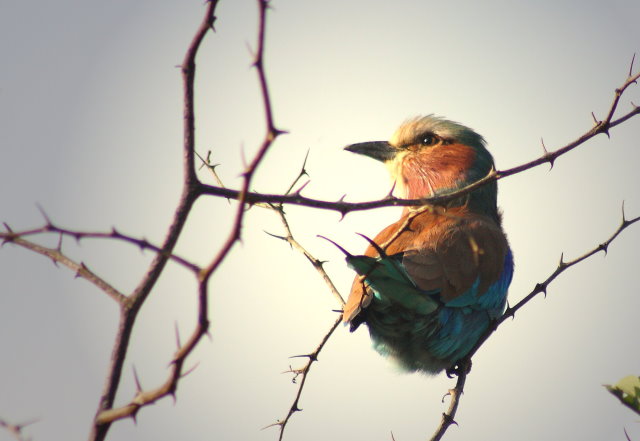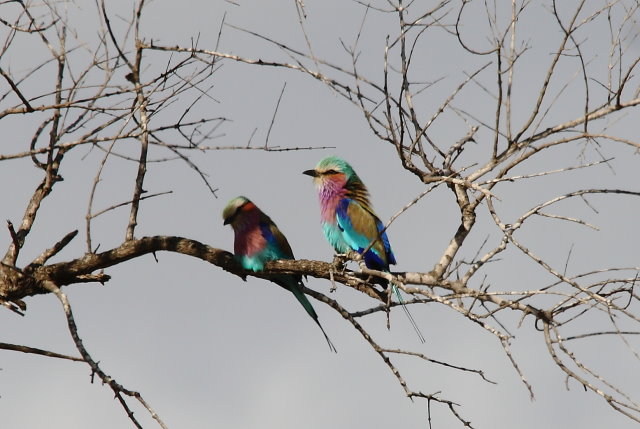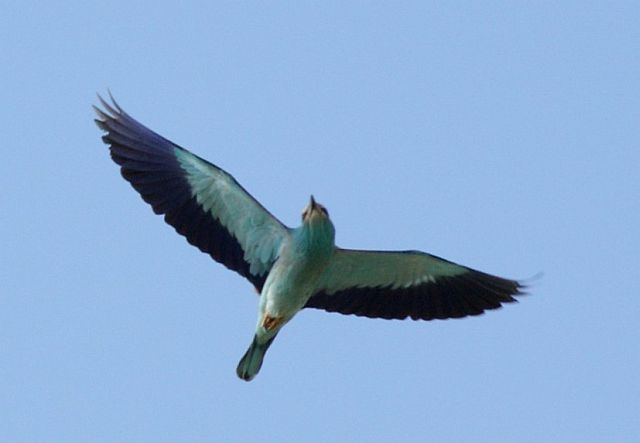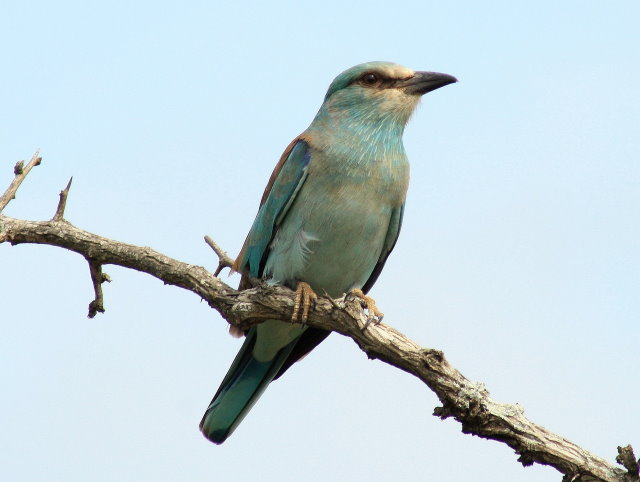It is the "Goldenhourlightcommonlesserunspottedverreax'slilacishbreastedroller" according to the New Sasol Field Guide which will be available in bookshops in the not too far distant future.
Rollers - Bird of the Month: December 2012
- Sprocky
- Posts: 7110
- Joined: Sat May 19, 2012 12:29 pm
- Country: South Africa
- Location: Grietjie Private Reserve
- Contact:
Re: Rollers - Africa Wild Bird of the Month: December 2012
Flutters, they are very common in this area. 
It is the "Goldenhourlightcommonlesserunspottedverreax'slilacishbreastedroller" according to the New Sasol Field Guide which will be available in bookshops in the not too far distant future.
It is the "Goldenhourlightcommonlesserunspottedverreax'slilacishbreastedroller" according to the New Sasol Field Guide which will be available in bookshops in the not too far distant future.
Sometimes it’s not until you don’t see what you want to see, that you truly open your eyes.
Re: Rollers - Africa Wild Bird of the Month: December 2012
Lilac-breasted Roller
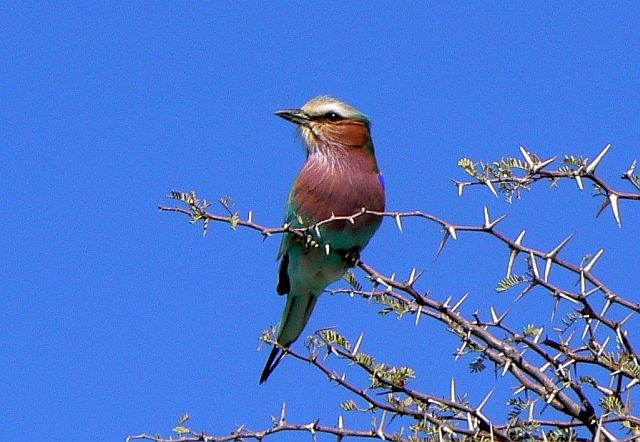 in Kgalagadi Transfrontier Park
in Kgalagadi Transfrontier Park
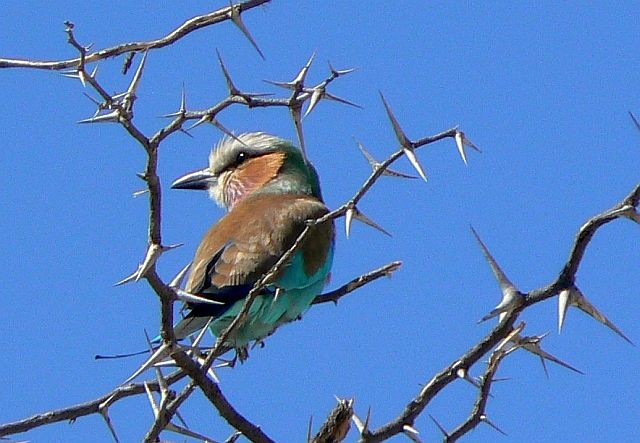 in Kgalagadi Transfrontier Park
in Kgalagadi Transfrontier Park
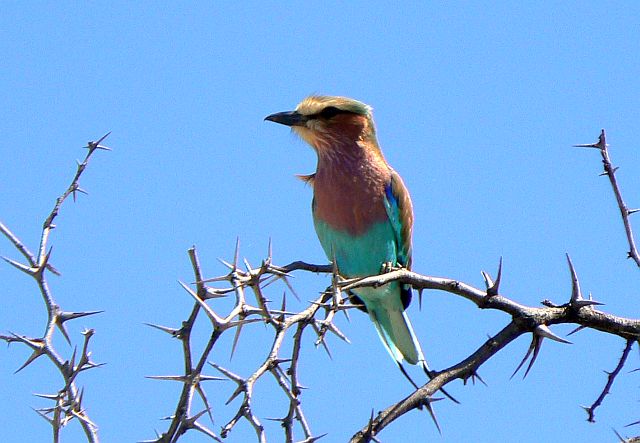 in Kgalagadi Transfrontier Park
in Kgalagadi Transfrontier Park
 in Etosha
in Etosha
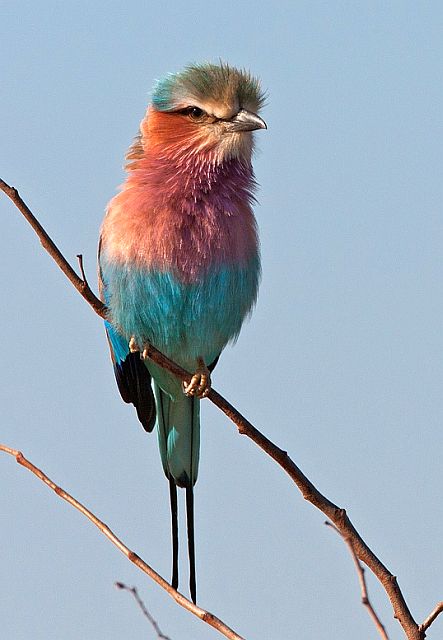 in Kruger
in Kruger
 in Kgalagadi Transfrontier Park
in Kgalagadi Transfrontier Park in Kgalagadi Transfrontier Park
in Kgalagadi Transfrontier Park in Kgalagadi Transfrontier Park
in Kgalagadi Transfrontier Park in Etosha
in Etosha  in Kruger
in KrugerRe: Rollers - Africa Wild Bird of the Month: December 2012
Lilac-breasted Roller ![Photo [O]](./images/smilies/camera.gif) from Djuma Webcam (Sabi Sand GR)
from Djuma Webcam (Sabi Sand GR)
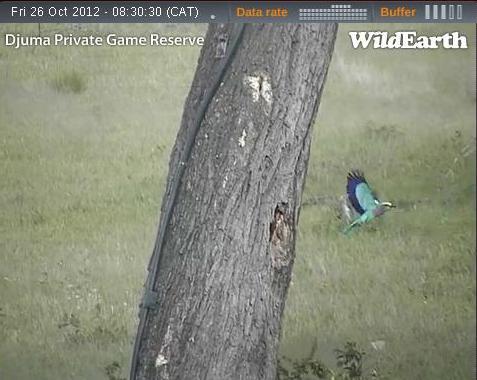 leaving the nest
leaving the nest
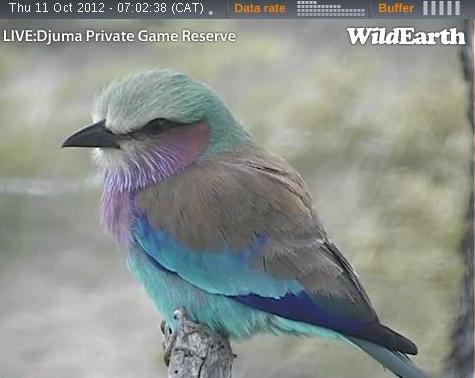
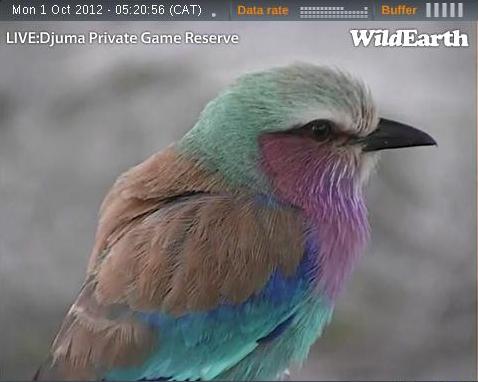
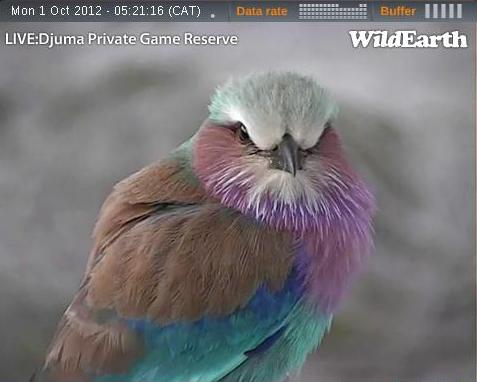
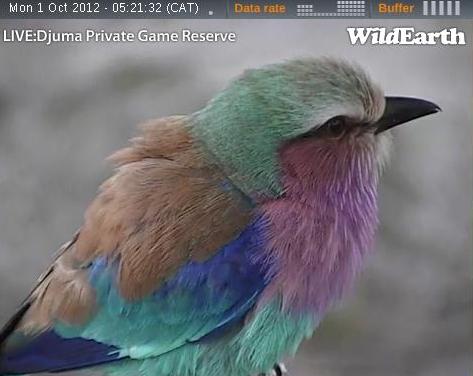
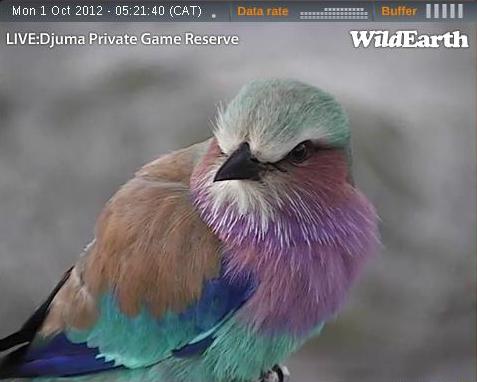
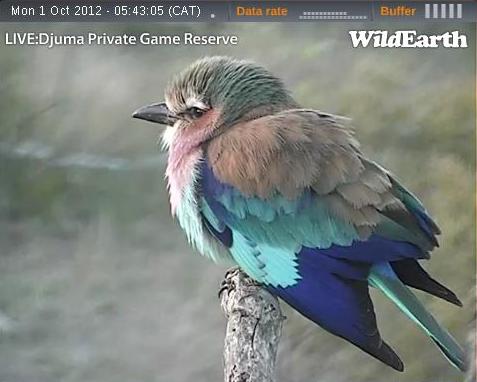
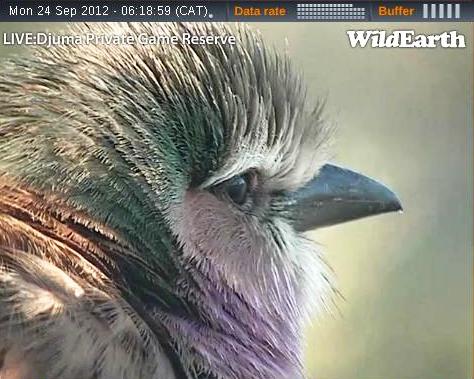
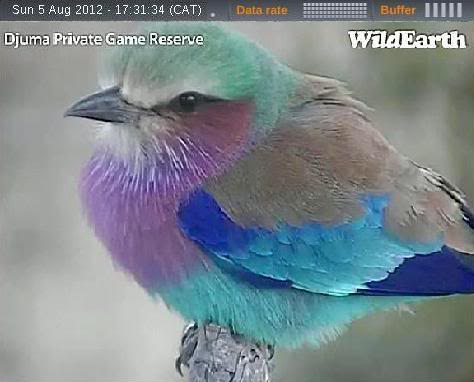
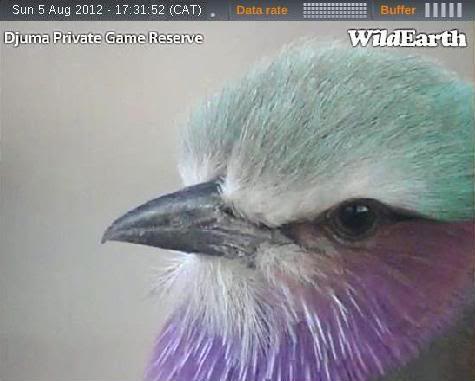
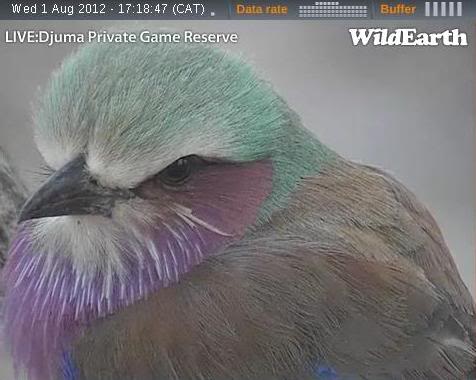
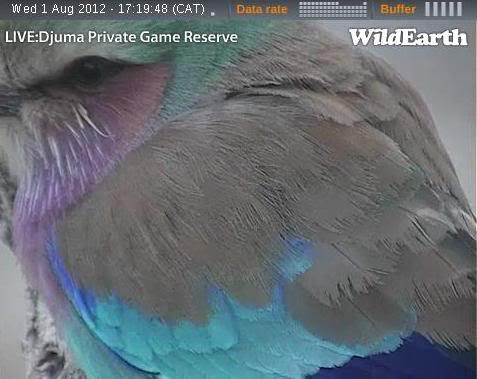
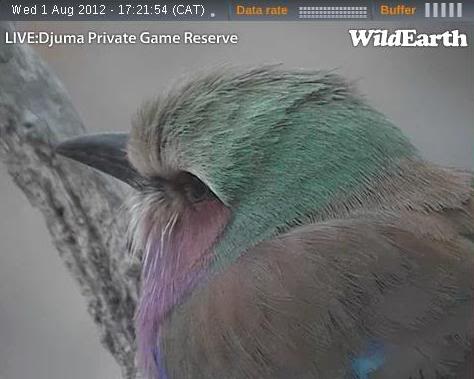
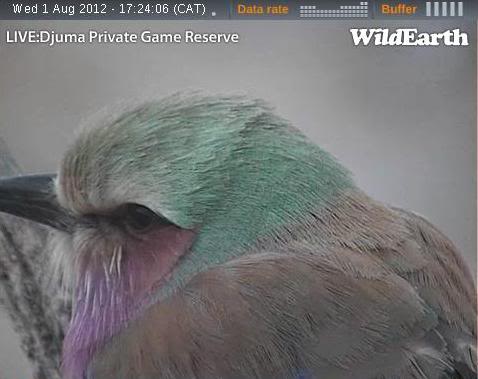
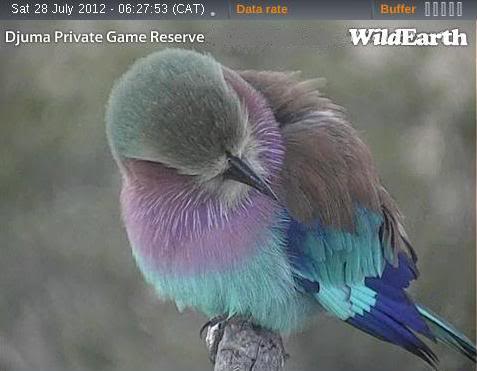
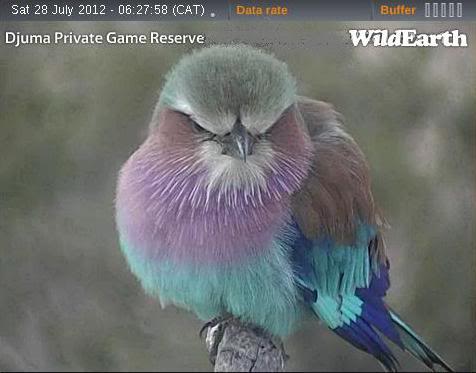
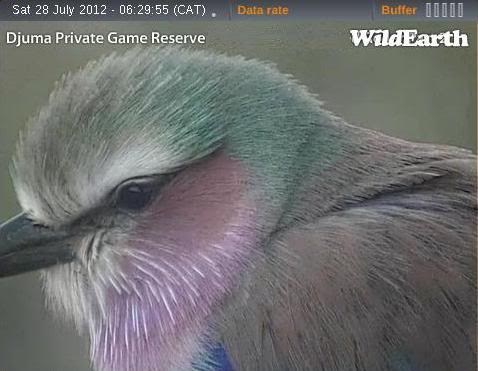
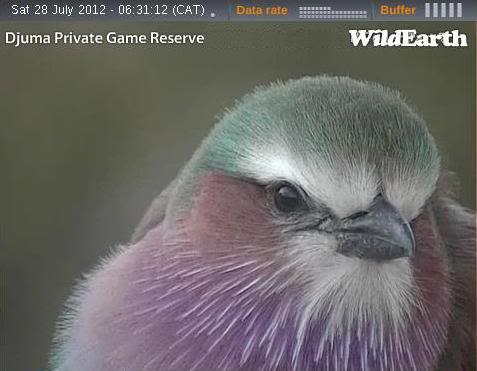
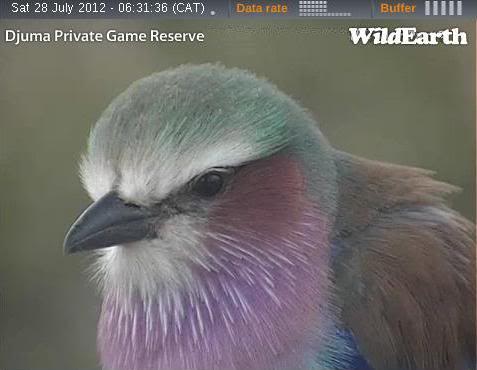
 leaving the nest
leaving the nest

















Re: Rollers - Africa Wild Bird of the Month: December 2012
Mapungubwe National Park: Lilac-breasted Roller
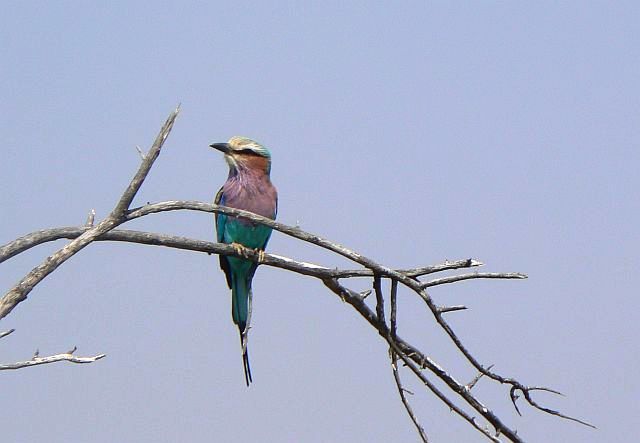
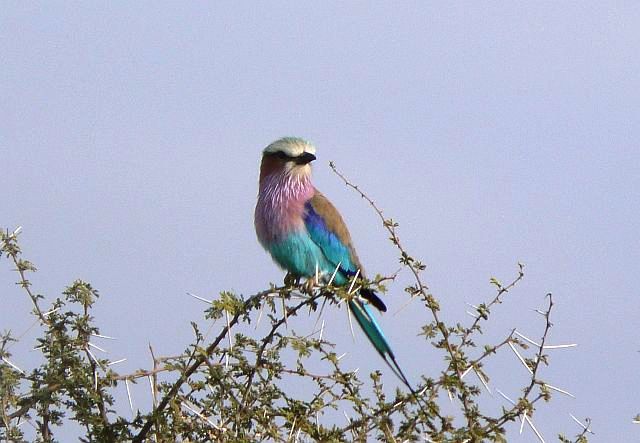


- Amoli
- Posts: 6032
- Joined: Fri Jun 01, 2012 4:30 am
- Country: South Africa
- Location: Kempton Park
- Contact:
Re: Rollers - Africa Wild Bird of the Month: December 2012
Lilac-breasted roller Coracias caudatus
The Lilac-breasted roller is found from Eritrea and Somalia south to the northern half of southern Africa, where it is common in dry woodland. It feeds on a wide variety of animals, preferring insects over reptiles, arachnids, birds and rodents. It usually uses cavities in trees as nest sites, 2-8 m above ground, although it is capable of kicking other birds out of their nests. It lays 2-4 eggs, which are incubated by both sexes, for 17-25 days. The chicks stay in the nest for about 19 days, after which it is dependent on its parents for about 20 more days.
It is interesting how many birds nest in cavaties in trees. I will surely look closer.
The Lilac-breasted roller is found from Eritrea and Somalia south to the northern half of southern Africa, where it is common in dry woodland. It feeds on a wide variety of animals, preferring insects over reptiles, arachnids, birds and rodents. It usually uses cavities in trees as nest sites, 2-8 m above ground, although it is capable of kicking other birds out of their nests. It lays 2-4 eggs, which are incubated by both sexes, for 17-25 days. The chicks stay in the nest for about 19 days, after which it is dependent on its parents for about 20 more days.
It is interesting how many birds nest in cavaties in trees. I will surely look closer.
Pretoriuskop
Satara
Shingwedzi
20-30 Dec 2014
Satara
Shingwedzi
20-30 Dec 2014
Re: Rollers - Africa Wild Bird of the Month: December 2012
European Roller Coracias garrulus
Description
The European roller resembles a crow in size and build, but has stunningly colourful plumage, very unlike a crow. The head, neck and underparts are light blue, whilst the upperparts are brownish-orange. When the wings are extended the brilliant azure blue leading edge and the contrasting black wing-tips can be seen. A short, thin black stripe runs through the eye and the tail is greenish-blue with a darker base. There are two subspecies of the European roller; Coracias garrulus semenowi differs from Coracias garrulous garrulus by being slightly paler.
Size
Length: 31 – 32 cm
Male weight: 127 – 160 g
Female weight: 130 – 154 g
Biology
The heavy-bodied European roller feeds on invertebrates, such as beetles, crickets, locusts, caterpillars, flies and spiders. They are also know to prey on small numbers of larger animals such as frogs, lizards, snakes and weak, small birds. It spends long periods sitting on an elevated perch, such as a bare branch or a power line, watching the ground intently for potential prey. The European roller will also follow ploughs on farmland, where disturbance of the soil unearths a feast.
The European roller migrates vast distances between continents. From the breeding grounds of Europe and Asia, the roller flies over 10,000 kilometres to sub-Saharan Africa, repeating the mammoth journey again in spring. The movement in early April of hundreds of thousands of rollers travelling north in a narrow corridor along the coast, from Tanzania to Somalia, is one of Africa’s most spectacularly visible migrations.
Whilst on its breeding ground, the monogamous European roller will defend a territory with its mating partner. Within this territory a nest site is situated in a hole in a large tree, building, cliff or riverbank. A clutch of one to seven, but most commonly four or five, eggs are laid from May to June. The eggs are incubated, primarily by the female, for 17 to 19 days. The chicks hatch naked and blind, but quickly develop, and fledge after 25 to 30 days. The young continue to be fed by adults for a further three weeks or more.
Range
C. g. garrulous’ breeding range extends from northwest Africa, southwest and south-central Europe, east through Asia Minor to northwest Iran and southwest Siberia. C. g. semenowi breeds in Iraq and Iran, east to Kashmir and north to Turkmenistan, south Kazakhstan and northwest China. The European roller overwinters in two distinct regions of Africa, from Senegal east to Cameroon, and from Ethiopia west to Congo and south to South Africa.
Habitat
Within its breeding range the European roller can be found in warm, sunny lowlands. It prefers open countryside with patches of oak forest, mature pine woods with heathery clearings, orchards and mixed farmlands. On its African wintering grounds it primarily inhabits dry, wooded savanna and bushy plains.
Description
The European roller resembles a crow in size and build, but has stunningly colourful plumage, very unlike a crow. The head, neck and underparts are light blue, whilst the upperparts are brownish-orange. When the wings are extended the brilliant azure blue leading edge and the contrasting black wing-tips can be seen. A short, thin black stripe runs through the eye and the tail is greenish-blue with a darker base. There are two subspecies of the European roller; Coracias garrulus semenowi differs from Coracias garrulous garrulus by being slightly paler.
Size
Length: 31 – 32 cm
Male weight: 127 – 160 g
Female weight: 130 – 154 g
Biology
The heavy-bodied European roller feeds on invertebrates, such as beetles, crickets, locusts, caterpillars, flies and spiders. They are also know to prey on small numbers of larger animals such as frogs, lizards, snakes and weak, small birds. It spends long periods sitting on an elevated perch, such as a bare branch or a power line, watching the ground intently for potential prey. The European roller will also follow ploughs on farmland, where disturbance of the soil unearths a feast.
The European roller migrates vast distances between continents. From the breeding grounds of Europe and Asia, the roller flies over 10,000 kilometres to sub-Saharan Africa, repeating the mammoth journey again in spring. The movement in early April of hundreds of thousands of rollers travelling north in a narrow corridor along the coast, from Tanzania to Somalia, is one of Africa’s most spectacularly visible migrations.
Whilst on its breeding ground, the monogamous European roller will defend a territory with its mating partner. Within this territory a nest site is situated in a hole in a large tree, building, cliff or riverbank. A clutch of one to seven, but most commonly four or five, eggs are laid from May to June. The eggs are incubated, primarily by the female, for 17 to 19 days. The chicks hatch naked and blind, but quickly develop, and fledge after 25 to 30 days. The young continue to be fed by adults for a further three weeks or more.
Range
C. g. garrulous’ breeding range extends from northwest Africa, southwest and south-central Europe, east through Asia Minor to northwest Iran and southwest Siberia. C. g. semenowi breeds in Iraq and Iran, east to Kashmir and north to Turkmenistan, south Kazakhstan and northwest China. The European roller overwinters in two distinct regions of Africa, from Senegal east to Cameroon, and from Ethiopia west to Congo and south to South Africa.
Habitat
Within its breeding range the European roller can be found in warm, sunny lowlands. It prefers open countryside with patches of oak forest, mature pine woods with heathery clearings, orchards and mixed farmlands. On its African wintering grounds it primarily inhabits dry, wooded savanna and bushy plains.



